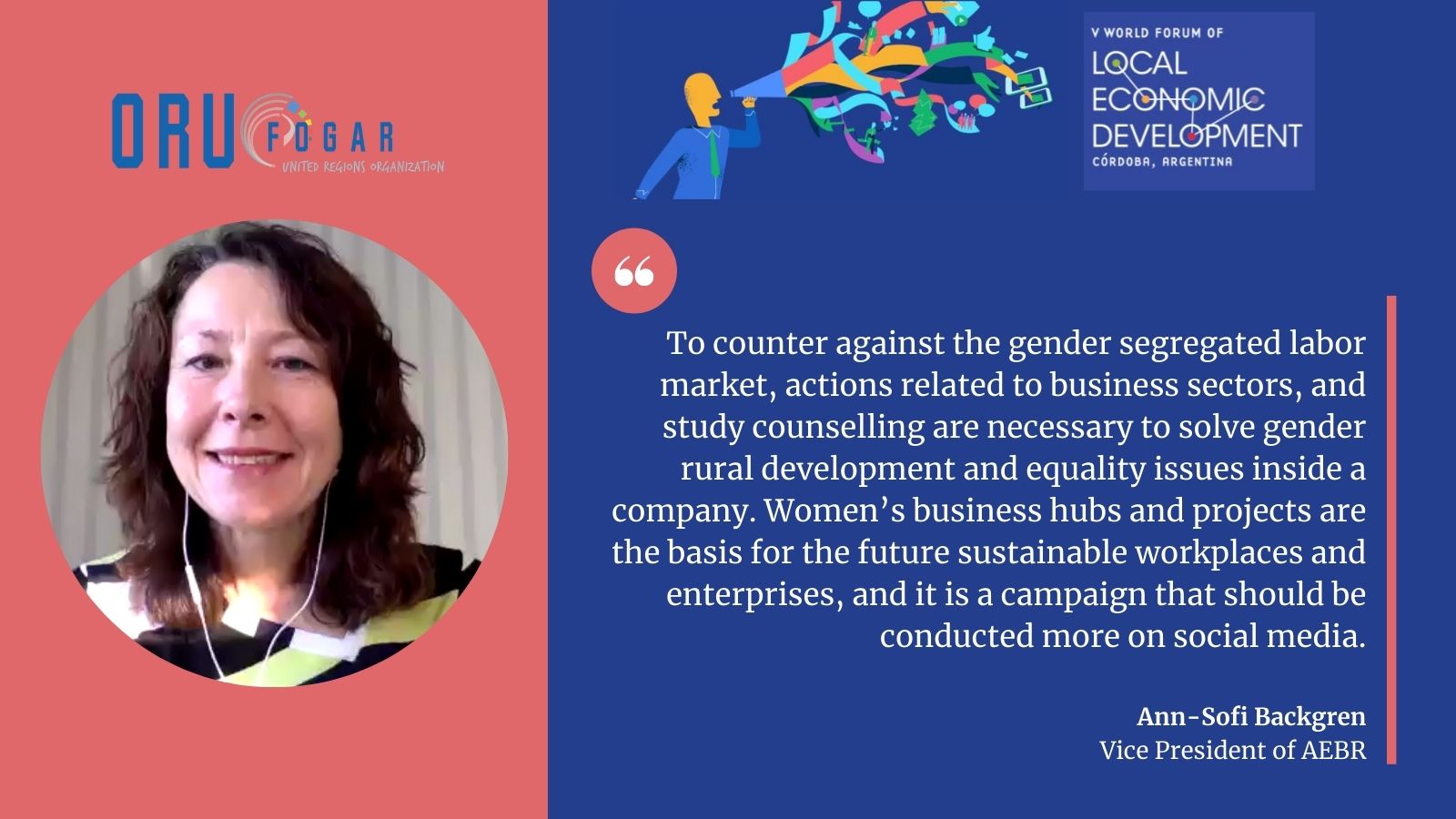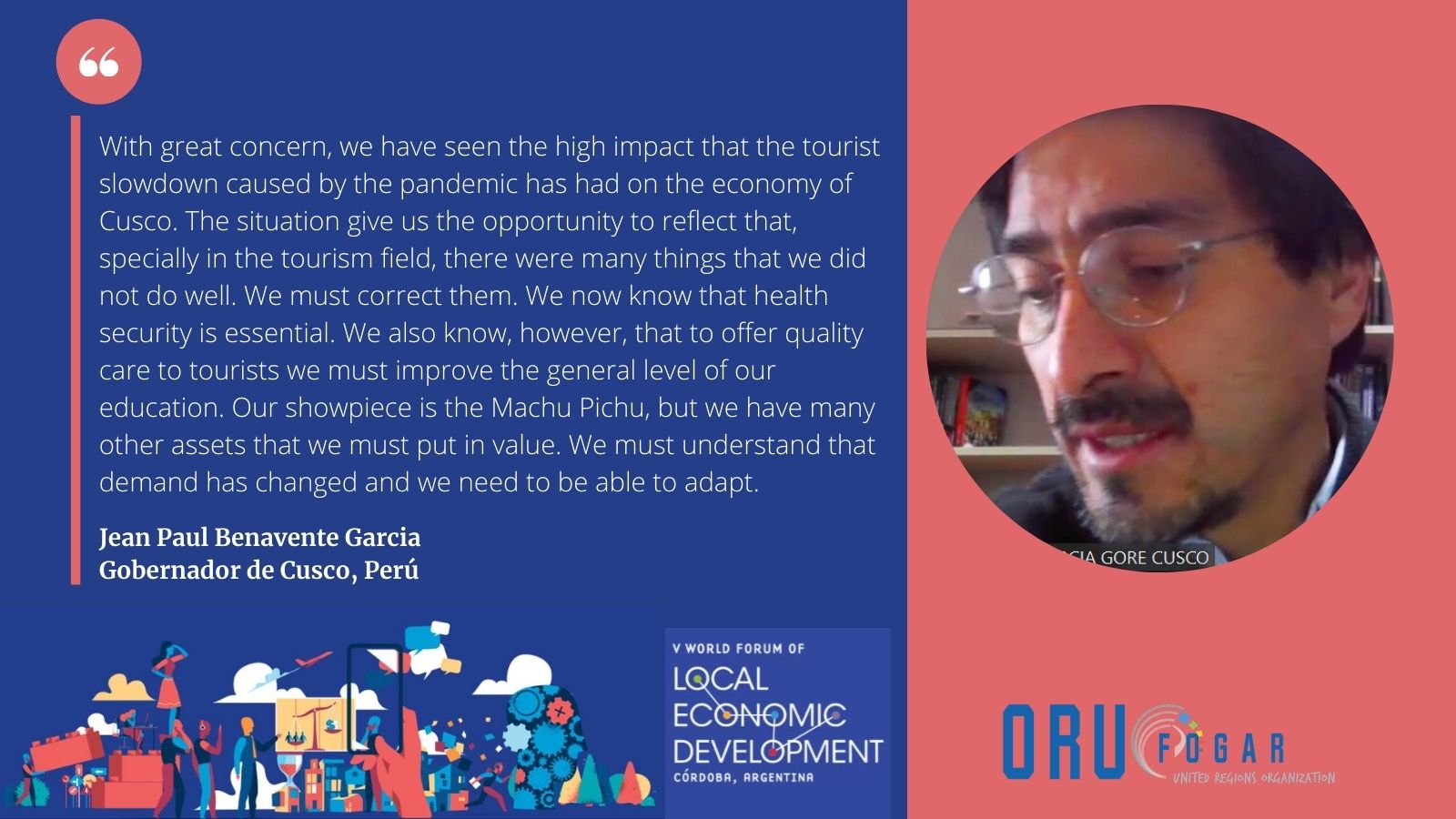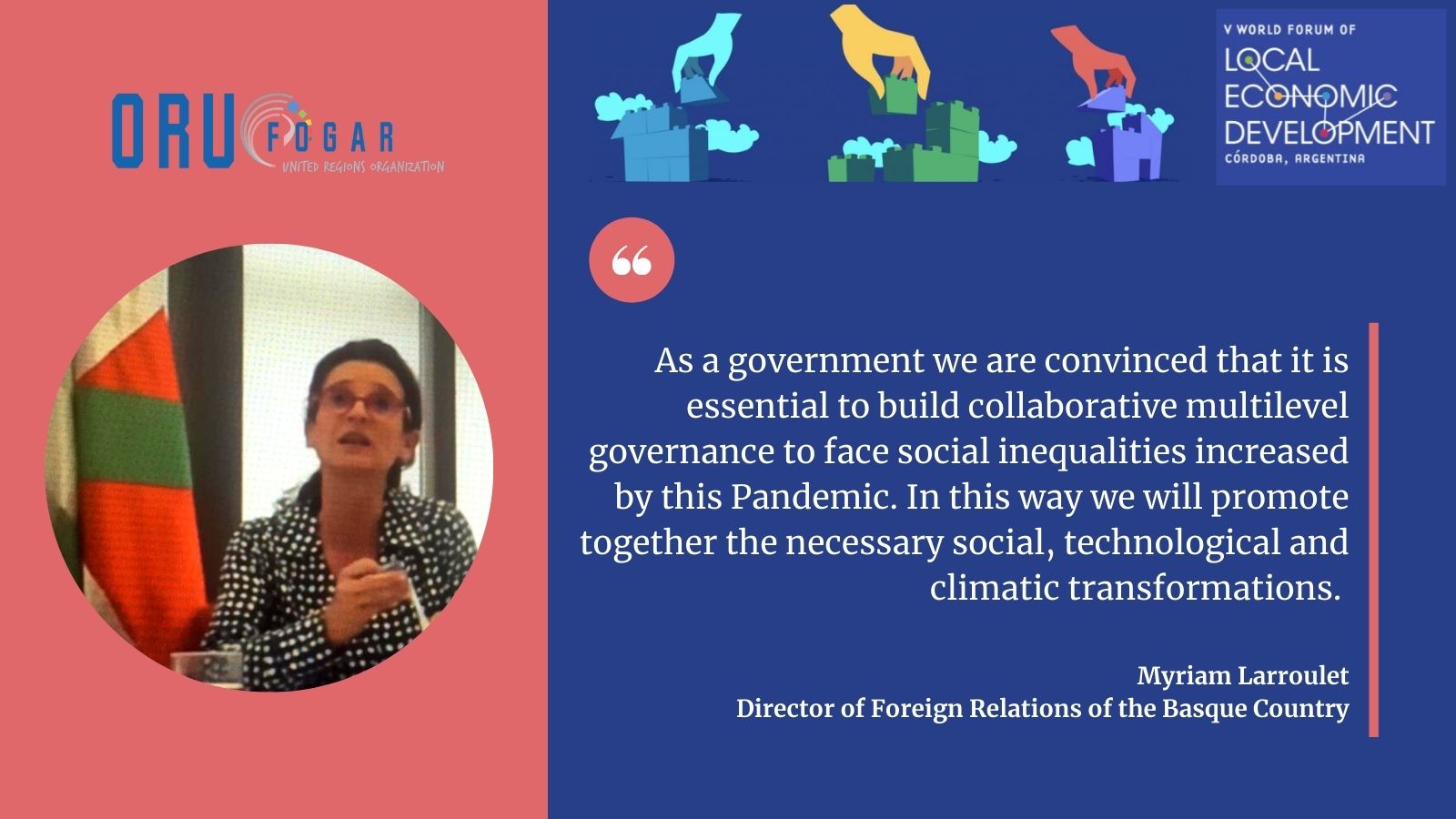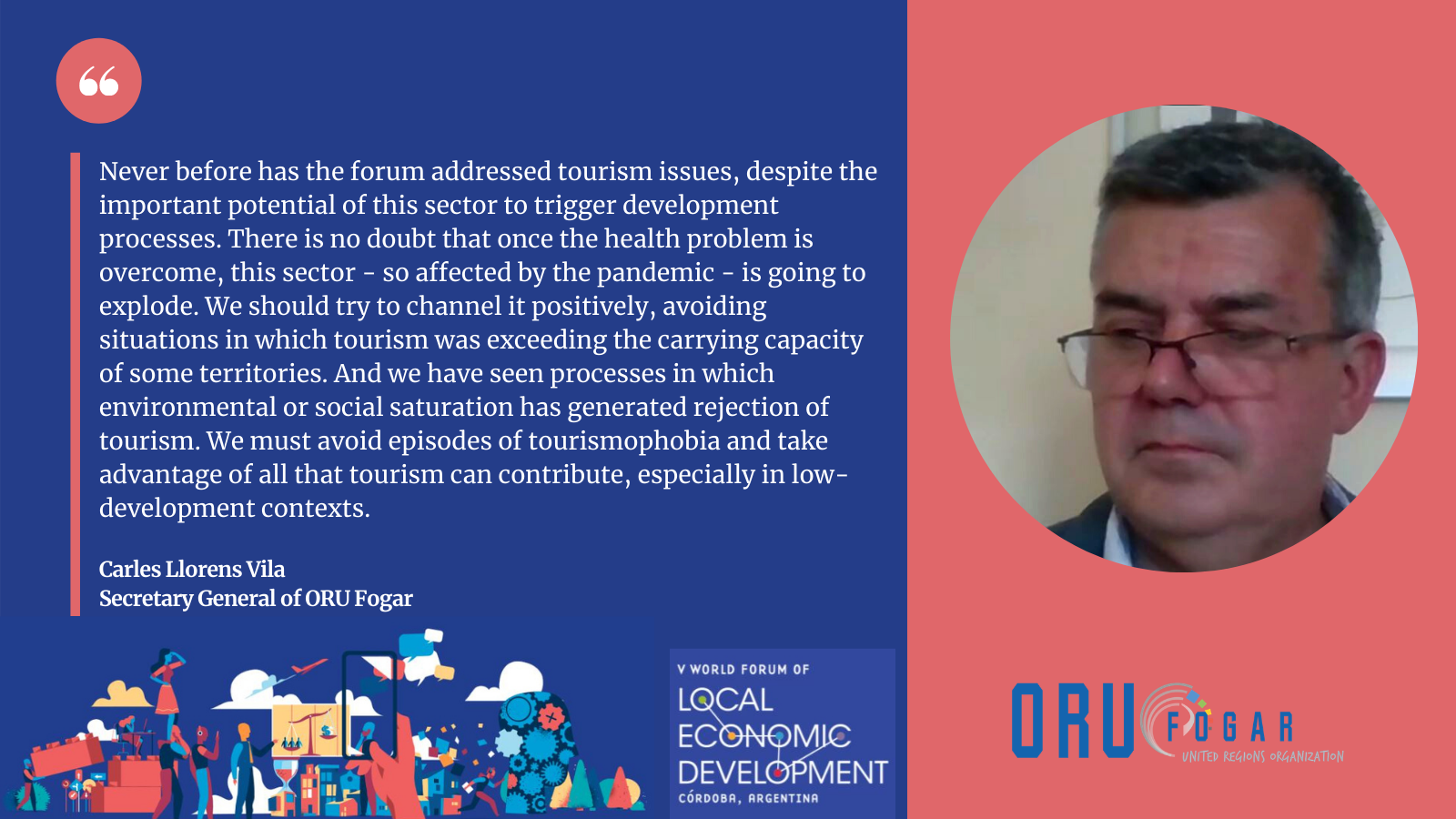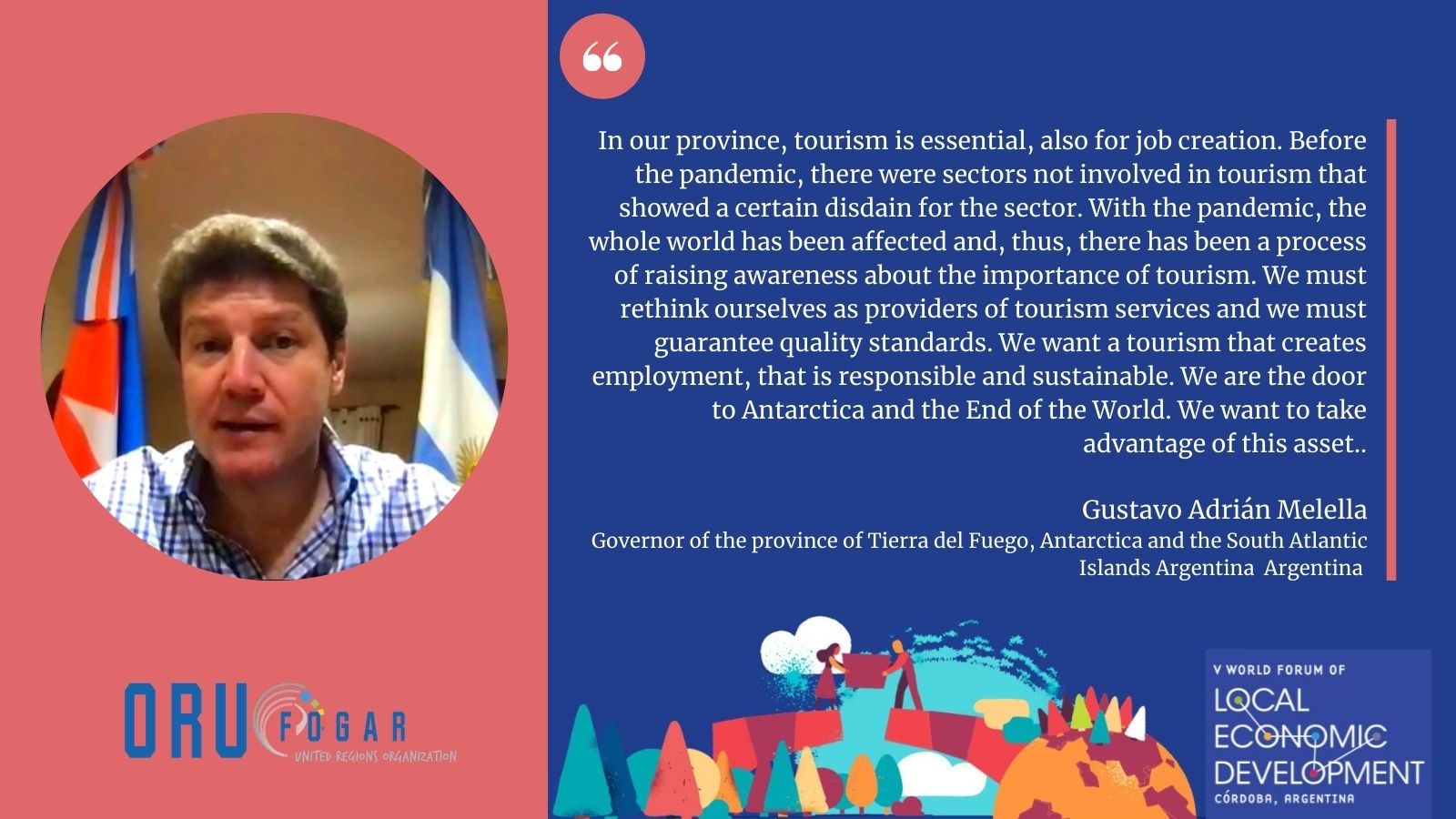Third day of the V Forum
For ORU Fogar, the third day of the Forum was marked by the space “Sustainable tourism with a territorial base: strategies for recovery”. The forum had never dealt with tourism, despite the significant potential of this sector to trigger development processes. All the panelists were clear that, once the health problem has been overcome, this sector - so affected by the pandemic - is going to explode. And there was also an agreement that it should be channeled positively, avoiding situations before the pandemic in which tourism was exceeding the carrying capacity of some territories.
Notable was the intervention of the governor of Cusco, Peru, Jean Paúl Benavente, who, manager of an international reference tourist space such as Machu Pichu, affirmed that in the past “there are many things that were not done well”. He said that the stoppage caused by the pandemic had "prompted them to reflect and it is evident that, in the tourism field, many things must be corrected." "We must," he said, "understand that demand has changed and adapt." He stated that, for tourism, not only health security is essential. So is education. "To offer quality service to tourists, we must improve the general educational level." He stated that, from the regional government of Cusco, the flagship is the Machu Pichu, but that they should value many other attractions.
During the panel, they spoke of processes in which environmental or social saturation has generated rejection of tourism. The governor of Tierra del Fuego, Argentina, Gustavo Adrián Melella, explained that in his territory there were sectors not involved in tourism that, before the pandemic, showed a certain disdain for the sector. He explained that, with the pandemic, everyone has been affected and, thus, there has been a process of raising awareness about the importance of tourism. Considering that, in his province, tourism is essential for job creation, he was in favor of rethinking the provision of tourism services, with guaranteed quality standards and a responsible and sustainable approach. “We are,” he explained, “the door to Antarctica and the End of the World. We want to take advantage of this asset ”.
The day did not end with this space. In the plenary session "Territorial economic models to address inequality in the current pandemic crisis", the Director of Foreign Relations of the Basque Government, Myriam Larroulet, was representing ORU Fogar. She assumed that the pandemic has exacerbated social inequalities. To overcome the situation, she advocated for multi-level collaborative governance, which allows us to face technological and environmental social challenges.
The vice-president of the Association of European Border Regions, Ann-Sofi Backgren, was in a space entitled “Socio-economic empowerment of women in recovery strategies: an effective means to reduce inequalities”. In her intervention, she was in favor of the regions promoting actions together with the municipalities, business sectors and studies to boost rural development and gender equality within companies.
